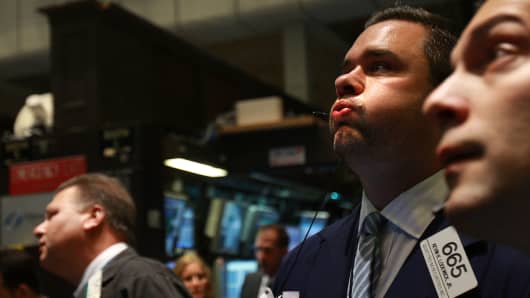No one is budging, even though the outlines of a deal can be done on the back of a napkin: On income tax rates, go from a top rate of 35 percent to 37 percent or 38 percent (instead of 39.5 percent) for those making above, say, $350,000 (instead of $250,000). On entitlements, raise the Medicare eligibility age to 66 from 65 initially,slightly raise premiums for higher wage earners (a means test is not unreasonable), and change the formulation for inflation adjustments on Social Security.
Instead, stocks are rallying on Europe. The Greeks announced the terms under which they will be buying back their debt, and to everyone's surprise the bonds are priced well above the levels expected, causing a big drop (9 percent!) in Greek 10-year yields, and a one-to two-percent rally in Greek, German, French, and U.K. stocks.
The main German and French stock market indices are at 52-week highs; the euro is at a six-week high.
Spain also officially asked for European funds to recapitalize its banking sector.
Elsewhere:
1) China manufacturing numbers (PMI) improved in November, but investors didn't care. It was good news, and it's possible that China's gross domestic product will be well above the 7.5 percent most have targeted. There are other signs of improvement. November new home prices rose for the sixth straight month, according to ISI.
No matter: The Shanghai market was down another 1 percent to the lowest level since January 2009.
This is really weird: The outlook looks better, but the valuations keep dropping. The rest of the world rallied on this news ... even Korea was up. Some are saying there is a growing belief that less stimulus than expected is coming.
But this did not happen just this week. China's stock market is among the worst-performing markets this year: Shanghai is down 10.9 percent, when many other markets are UP 10 percent or so (Hong Kong is up 18 percent).
Who's right? When I noted this disparity between Shanghai and Hong Kong last week, many asked me who was right. I tend to side with Hong Kong, for several reasons:
1) Shanghai is dominated by domestic investors, who tend to be relatively unsophisticated; the market is closed to foreign investors;
2) Shanghai has a much bigger float than Hong Kong. Chinese companies, unfortunately, have flooded the domestic stock market with too many shares. There is not enough liquidity to handle all the shares outstanding, and you constantly hear calls for buybacks;
3) there are more alternatives for domestic investors than there used to be; specifically, wider availability of mortgages makes real estate an alternative to stocks; and
4) the Hong Kong exchange allows global investors to invest, allowing for a far more efficient market.


